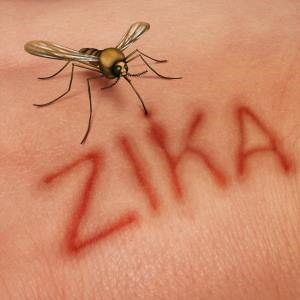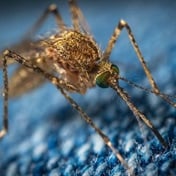
We’ve all seen the word “Zika” splashed across the headlines and most of us are aware that it has something to do with Brazil and babies with small heads. Many people, however, don't know what all the fuss is about, how it affects us and if we should be worried at all.
Here are 10 facts about Zika:
1. The word “Zika” refers to a virus. The virus belongs to the family Flaviviridae and the name derives from the Zika forest in Uganda where it was isolated in 1947 in monkeys. It was identified in humans in 1952 in Uganda and Tanzania.
2. The Zika virus is spread to humans mainly through the bite of an infected Aedes aegypti or Aedes albopticus mosquito. These are the mosquitoes that also spread the dengue and chikungunya viruses. They usually bite during the daytime. Zika virus infection can be confirmed by laboratory tests on body fluids like blood, urine, saliva or semen.
Read: Hotter conditions allow Zika mosquito to flourish
3. Before 2015, Zika outbreaks occurred in parts of Africa, Southeast Asia and the Pacific islands. It has since spread to Brazil and, according to the WHO, from 1 January 2007 to 6 April 2016, Zika virus transmission was documented in a total of 62 countries and territories. The virus is likely to continue spreading and it is difficult to predict where it will spread to and how long it will take.
4. The symptoms of Zika virus disease are similar to dengue, and include:
- Fever
- Skin rashes
- Conjunctivitis
- Muscle and joint pain
- Malaise
- Headache
Symptoms tend to be mild and last for two days to a week. The incubation period is estimated to be a few days. There is currently no drug treatment or vaccine for Zika virus disease.
Read: Genes may offer a way to stop Zika from spreading in the body
5. Known complications of of Zika virus disease, according to the WHO, are microcephaly and Guillain-Barré syndrome. There may be a link between the Zika virus and a number of neurological disorders. Microcephaly is a birth defect where babies’ heads are smaller than those of their peers. It is also associated with incomplete brain development. Guillain-Barre syndrome is a condition where the immune system attacks nerves, leading to muscle weakness and sometimes paralysis.
6. The Zika virus can also be transmitted:
- From mother to child. A pregnant mother can pass the Zika virus to her foetus while she is pregnant.
- Through sexual contact. The virus can be spread by a man to his sex partners.
- Through blood transfusion. There have been a large number of blood transfusion cases in Brazil and the virus has been found in blood donors in other countries.
- Through laboratory exposure. There have been four reports of laboratory acquired Zika virus infections.
7. South Africa is not likely to be at risk of Zika, according to The National Institute of Communicable Diseases (NICD) – even though Zika virus disease is spreading explosively in the Americas. (The Zika virus tends to favour tropical regions.) Professor Lucille Blumberg, a deputy director at the NICD, however, warns that pregnant women should be careful about going abroad, especially to Brazil.
Read: Will the Zika virus spread to South Africa?
8. Because Zika can be transferred though sexual intercourse, couples and individuals returning from Zika-affected areas should practise safe sex for at least eight weeks.
9. Zika is not the end of the world. Although it has been declared “a global public health emergency” by the WHO, as stated above, most people who contract Zika virus disease have very mild symptoms. The link between the Zika virus and microcephaly has also not been conclusively proven, only "strongly suspected".
10. There is definitely no need for the Olympics to be cancelled, postponed or moved. In response to the news that golfer Rory McIlroy withdrew from the Olympics over Zika fears, an expert said that only pregnant women and people planning a family need fear Zika.
Read more:
Zika virus spreads to more tropical destinations
Pregnant women in SA warned about Zika virus
Link between Zika and microcephaly not yet proven
References:
WHO: Zika Virus. http://www.who.int/mediacentre/factsheets/zika/en/
CDC: Transmission & Risks. http://www.cdc.gov/zika/transmission/
WHO: Zika Situation Report. http://www.who.int/emergencies/zika-virus/situation-report/7-april-2016/en/




 Publications
Publications
 Partners
Partners











